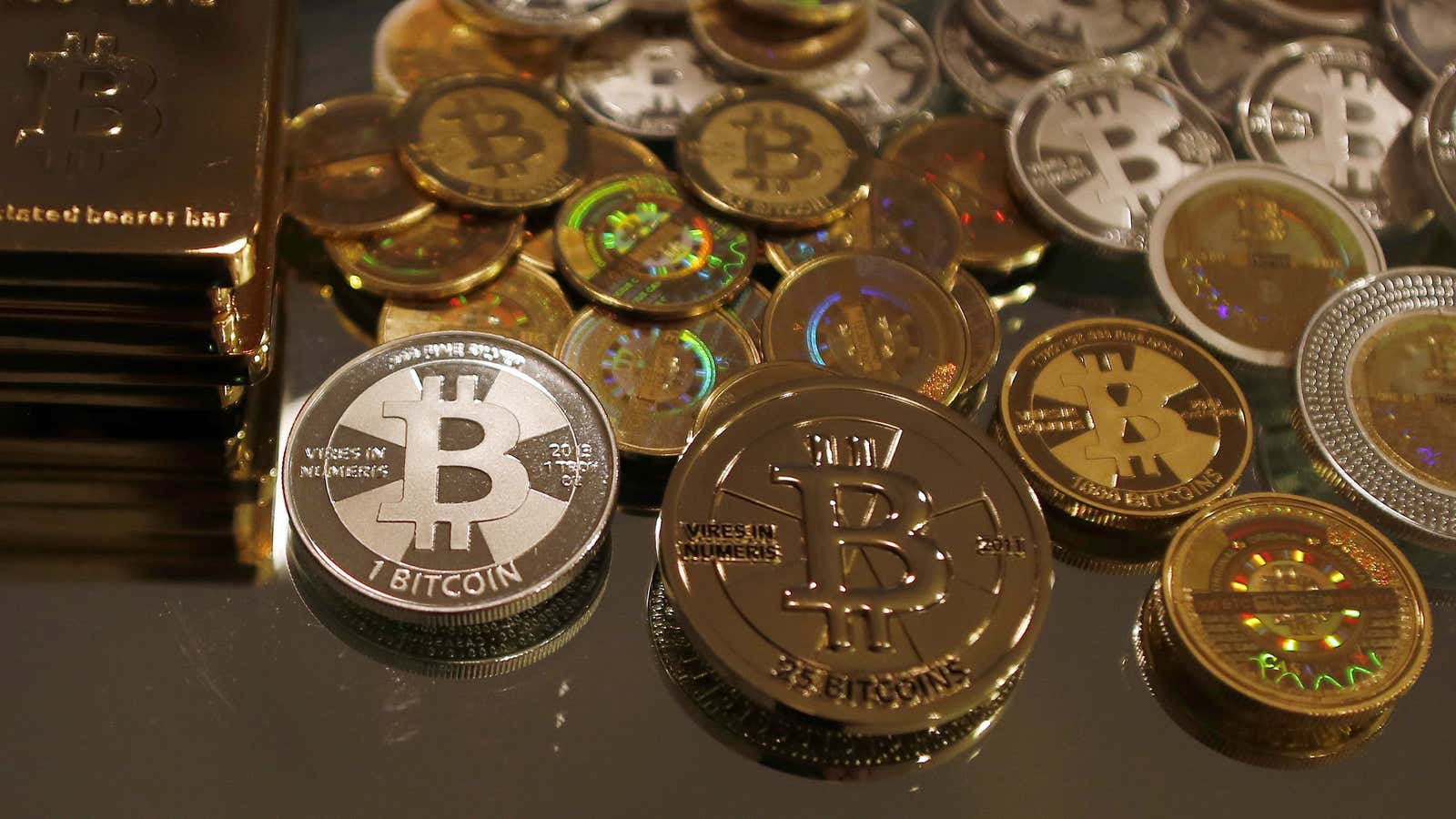Shanghai-based BTCC said it would halt trading on its domestic cryptocurrency exchange by Sept. 30, in response to tighter control over trading crypto tokens by China’s central bank. This followed a report from local media (in Chinese) saying that the exchange had received a verbal notice to halt trading from Shanghai’s financial regulator.
BTCC said on Twitter that it was closing its domestic exchange, which operates at BTCChina.com, in response to a Sept. 4 notice from China’s central bank that forbade trading in cryptographic tokens issued through “initial coin offerings.” The exchange had traded a token called ICOCoin, which was started by a BTCC co-founder. The regulatory notice did not explicitly ban trading in digital currencies such as bitcoin and ether—but BTCC will shut down its trading of such currencies for Chinese customers as well.
The firm said in a notice on its website it would stop registering new users on BTCChina today, and that all trading there would halt by Sept. 30. It said its other businesses, which include a mining pool it operates, and an exchange that doesn’t deal with Chinese customers, were unaffected.
The two other major Chinese exchanges, Huobi and OKCoin, continue to operate as normal. Both exchanges told Quartz they had not received any new directives from regulators.
BTCC, founded in 2011, assumed the mantle of the world’s oldest bitcoin exchange after the collapse of Mt. Gox in 2014. It was originally known as BTC China, and in the aftermath of Mt. Gox’s collapse, it also became the biggest bitcoin exchange in the world by trading volume. Its Chinese rivals eclipsed it over time, fueled by a business model that allowed users to trade for free, although BTCC remained a major player. This fee-free model also pushed China’s trading volumes to grow to over 90% of the global market.
Trade volumes in China today are an important, but much smaller part of the global bitcoin markets. Trade in Chinese yuan accounted for 12% of all trading on global exchanges, compared to 36% for the US dollar and 40% in Japanese yen over the last 30 days, according to data platform Crypto Compare. Volume on Japanese exchanges is also likely inflated by the fee-free model they adopted from their Chinese counterparts.
